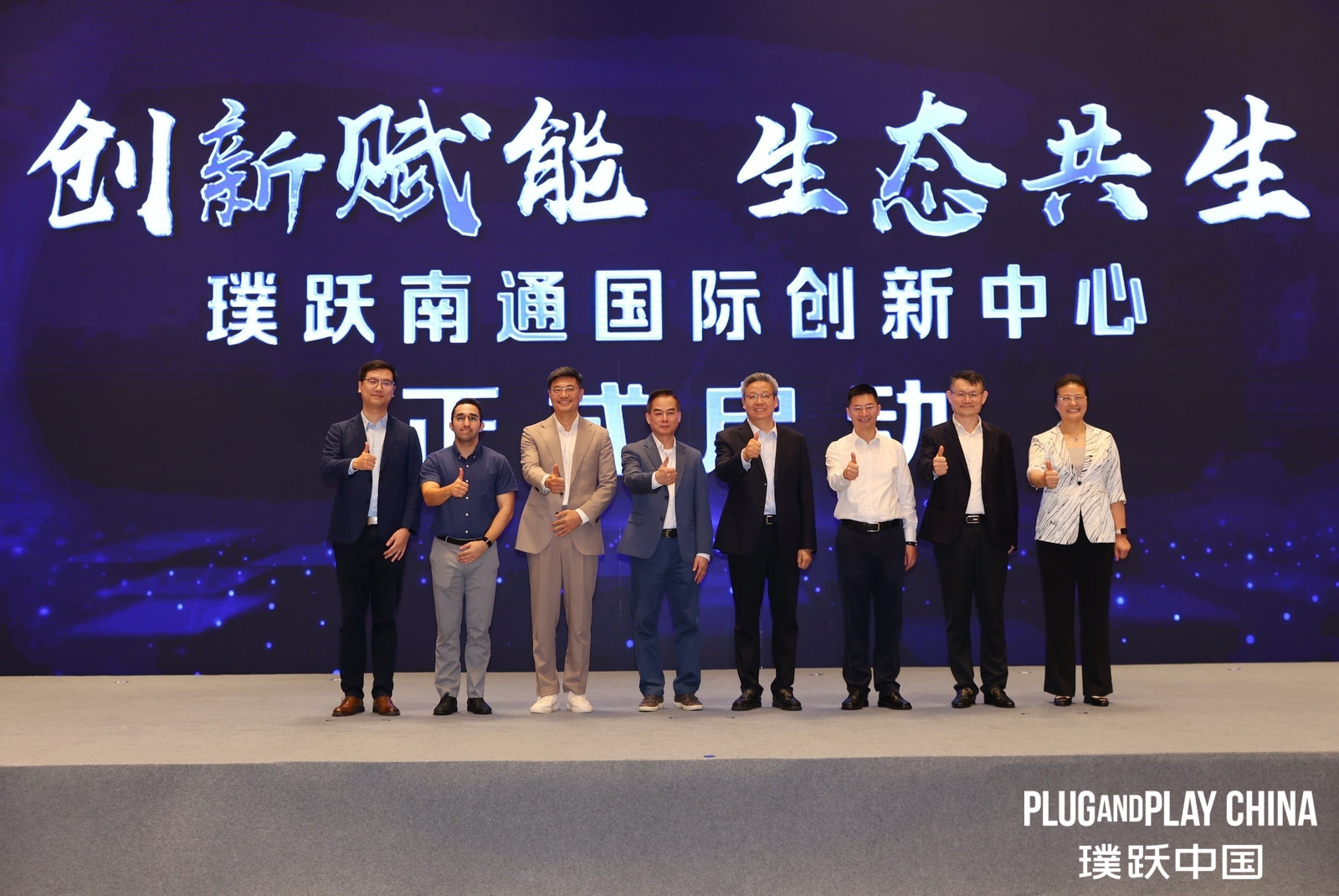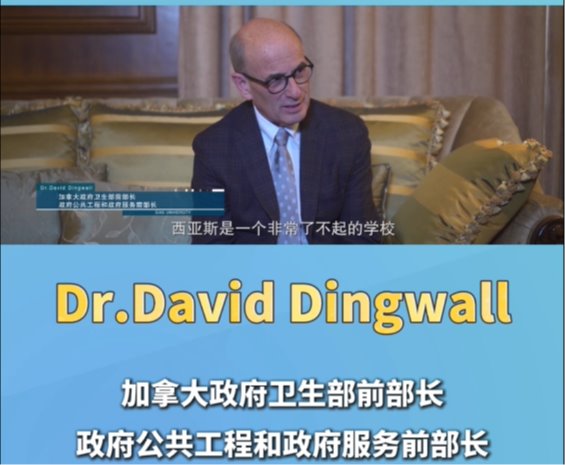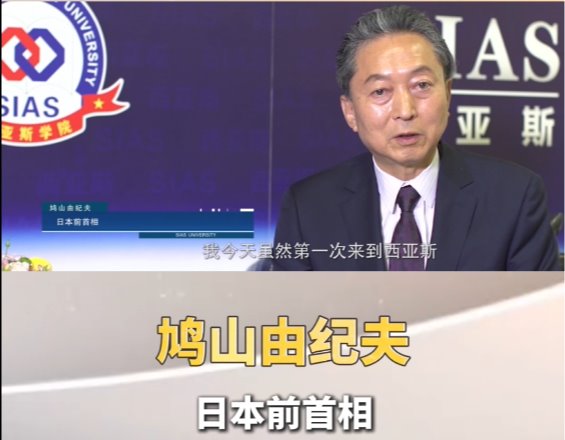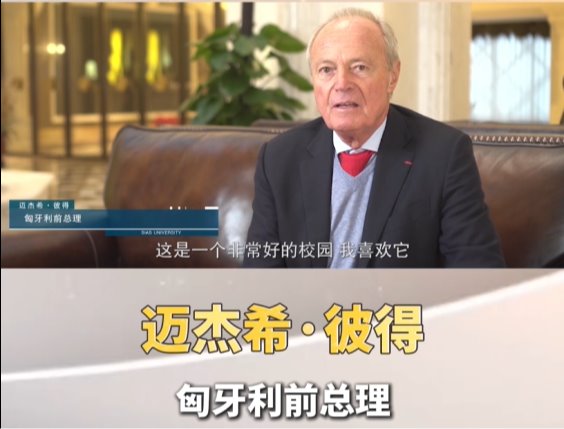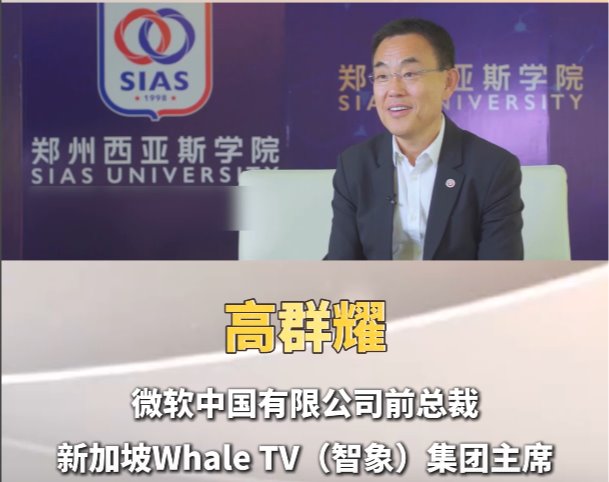The President of the Chinese Society of Education, Prof. Zhong Binglin, visited Sias. A renowned scholar, Zhong Binglin, is also a former President of Beijing Normal University, the current Secretary of Higher Education at the Ministry of Education, and an Honorary Vice-Chancellor of Cardiff University in the United Kingdom.
The founder and Chairman of the Board of Sias, Dr. Shawn Chen, and Zhong Binglin, were accompanied by the heads of various departments from Sias, on a campus tour. They visited European Street, with its examples of student entrepreneurship, German Street, the CUBA Training Facility, the Golf Driving Range, the Chinese Garden, and the New Sias Library. In the lecture hall in the Administration Building, Dr. Shawn Chen spoke of the founding and history of Sias, and the campus design that incorporated Sias' East-meets-West educational philosophy. He also spoke of Sias' progress and future development goals.
Prof. Zhong Binglin then delivered a lecture on private development and quality construction. Dr. Shawn Chen, Sias President Chen Sikun, Vice President Liu Shuqin, Deputy Party Secretary Li Huafeng, Proctor Han Xiaoai, Assistant Principal Sun Rujian, and Assistant Principal Guo Xuede, were in attendance, along with the heads of all departments at Sias.
In his lecture, Prof. Zhong Binglin reviewed the history of the development of civilian-run higher education in China, analyzed the present status, and its future prospects. He pointed out that private colleges and universities are an important part of China's higher education system, as they are non-governmental institutions of education that contribute to China's overall educational quality. With the rapid development and reform of education in China, significant results have been achieved, with the quality of education now becoming an increasing priority. This requires an expansive development of education characterized by spatial expansion in order to improve the quality and optimize the existing structures for development.
Prof. Zhong Binglin pointed out that private colleges and universities in China have contributed significantly to development reform with their increased focus on quality. With their systems in place, they have attracted a wide range of capital investment, effectively alleviating the shortage of higher education access, as well as training students in practical skills in order to meet social and public needs for reform. On the other hand, private higher education faces deep-seated issues, such as the conflict arising in non-profit and for-profit schools when a decrease in students leads to a surge in pressure for survival. Relations between the government and non-governmental educational institutions have not been completely straightened out either, with regard to the protection of teachers' rights and interests, as well as the lack of uniform quality and content development goals.
In closing, he delivered four points. First, he said that private colleges and universities should first achieve their goals and targets, focusing on development, nurturing talent, and the smooth functioning of their core tasks. This would help the physical and mental development of students, along with the coordinated development of the structure, quality, and efficiency of the institution, all leading to a coordinated and harmonious development. Second, the reform of personnel training will have a positive impact on the transformation of economic development, the progress of science and technology, economic globalization, and the challenges facing the internationalization of education. The implementation and requirements of this training will strengthen professional reform, amend and optimize the curriculum, reform the teaching methods, and will thus guarantee a quality educational system. Third, the strengthening of human resources, including the strengthening of teaching and management team construction, will in turn improve the quality of the students. Fourth, creating a good campus culture wherein the pursuit of academic quality is the norm, will contribute to scientific and academic freedom based on a humanistic spirit, with a blend of traditional and modern values in a tolerant, multicultural and global vision for the university.
The Chairman of the Board of Sias, Dr. Shawn Chen, then delivered a speech and expressed his gratitude to Prof. Zhong Binglin for his lecture. He said that it was rich in information from a variety of perspectives, explored the deep-seated problems of higher education, and had given those in attendance plenty of food for thought. He also thanked him for his guidance on how to strengthen the functioning of private colleges and universities by improving the quality of education.







